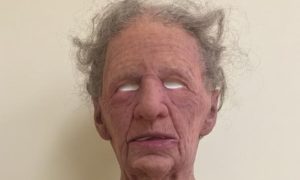Antihypertensive medications are more effective if they are taken at bedtime rather than in the morning, shows a study by Spanish researchers.
This way of taking the drugs would not only lead to better control of blood pressure, but also significantly reduce the risk of cardiovascular disease and death.
Our results show that patients taking antihypertensive medications have better controlled blood pressure and, most importantly, a significantly reduced risk of death or heart and vascular disease.
This research published in the European Heart Journal (New Window) (in English) is the largest to date to focus on the time of taking a drug against pressure and efficiency.
Warning : Before changing your pressure medication habits, it is best to discuss this with your doctor or pharmacist.
Landmarks
- Blood pressure is the force with which blood is pumped through the heart into the arteries.
- This force makes blood circulation possible, allowing the delivery of nutrients and oxygen to organs and tissues throughout the body.
- High blood pressure occurs when there is too much pressure on the blood vessels, which can damage blood vessels and organs.
- In the long term, it is an important risk factor for many diseases, including heart and vascular, but also kidney.
- Its origins are multiple: heredity, overweight, sedentary lifestyle, smoking, diet (too much salt) and aging.
The study
As many as 19,084 people who took their medication on waking or going to bed were followed for more than six years (on average). Their blood pressure was taken for 48 hours at least once a year.
The drugs studied were enalapril, valsartan or ramipril, but also telmisartan.
For example, patients who took their medications at bedtime had a 45% lower risk of dying from myocardial infarction, stroke, or heart failure, or having to have surgery to unblock arteries. compared to those who took their medication on waking.
The researchers adjusted their results to take into account other factors that may affect outcomes, such as age, sex, type 2 diabetes, kidney disease, smoking and cholesterol.
“The current guidelines for the treatment of hypertension do not favor any particular time for treatment,” Pr Hermida explains.
But a morning intake is often recommended by doctors, who think they reduce the morning pressure. However, according to the researcher, the blood pressure when a person sleeps is the most significant and independent indication of the risk of cardiovascular disease, regardless of the measures taken in a waking state
.
Tammy Fantesco is a reporter for Tech Droid. After graduating from Alliance Manchester Business School, Tammy got an internship at Channel 4 where she worked on social media outreach. Tammy was also was a columnist for the Huff Post UK. Tammy mostly mobile phone news.




